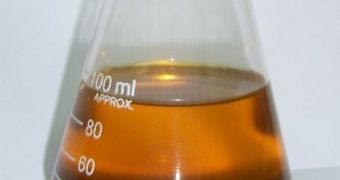Doing something about global warming and the rapid depletion of the world's non-renewable energy resources has recently become an important topic on some companies' agendas. The search for viable biofuels is well on its way and more and more car manufacturers are presenting concepts and prototypes of "green cars," that use alternative fuel sources.
Biodiesel is one of the green alternatives and US production of this fuel is at an all-time high, with new biodiesel plants being constructed in record number. However, there is one problem, the fact that this process creates large quantities of waste glycerin, that was so far impossible to put to good use.
Not anymore, because engineers at Rice University said they found the answer to the glycerin problem. They developed a new technology that transforms glycerin into ethanol, another ecological fuel. Ethanol is usually produced from biomass, like the leaves, stalks, trunks and stems of trees, that are usually leftovers after the harvest.
The new technique uses a bacterium that ferments glycerin to produce ethanol, great news for the companies producing biodiesel, which had to pay a lot of money to dispose of the waste glycerin. The bacteria is a known strain of E. coli (Escherichia coli), one of the main species of bacteria living in the lower intestines of mammals, known as gut flora.
When located in the large intestine, it actually assists with waste processing, vitamin K production and food absorption. The same principle is applied in the new process.
"We identified the metabolic processes and conditions that allow a known strain of E. coli to convert glycerin into ethanol," said Ramon Gonzalez, Rice's William Akers Assistant Professor in Chemical and Biomolecular Engineering. "It's also very efficient. We estimate the operational costs to be about 40 percent less that those of producing ethanol from corn."
"One pound of glycerin is produced for every 10 pounds of biodiesel," he continued. "The biodiesel business has tight margins, and until recently, glycerin was a valuable commodity, one that producers counted on selling to ensure profitability."
The new discovery will surely be introduced in commercial applications, since having a lot of waste that re-enters production instead of having to pay for its disposal is a very appealing concept for the owners of all biodiesel producing plants.
"We are confident that our findings will enable the use of E. coli to anaerobically produce ethanol and other products from glycerin with higher yields and lower costs than can be obtained using common sugar-based feedstocks like glucose and xylose," Gonzalez said.

 14 DAY TRIAL //
14 DAY TRIAL //